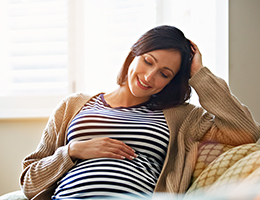
June 12, 2019—Fainting during pregnancy is rare. About 1% of pregnant women will faint at some point. But that number is growing. And a new study suggests fainting may be tied to serious health issues for both moms and their babies.
The problem with passing out
Fainting during pregnancy can have different causes. Sometimes pregnancy hormones cause blood vessels to relax and blood supply to increase. That can lead to low blood pressure, which may trigger a fainting episode. Or fainting can be related to an underlying health condition or pregnancy complication.
Researchers wanted to understand the effects these fainting episodes might have on women and babies. So they reviewed the birth records of nearly half a million babies born in Canada over a 10-year period. They also looked at the mother's medical records for a year after giving birth.
They found that there was a link between fainting and premature birth, birth defects and the mother's heart health. But when and how often the women fainted mattered. For example:
- Women who fainted during their first trimester were more likely to have a premature birth than women who fainted later or not at all.
- Women who fainted more than once during pregnancy were more likely to give birth to a baby with low birth weight or birth defects than women who fainted only once.
- One year after delivery, women who had fainted during pregnancy had higher rates of abnormal heart rhythms than those who hadn't.
Tell your doctor
Doctors watch women closely for pregnancy complications like gestational diabetes and pre-eclampsia because those conditions can be red flags about a baby's safety and a women's heart health. Now fainting should be added to that list, researchers said.
To protect yourself and your baby, tell your doctor right away if you faint while pregnant. You might need to be more closely monitored during your pregnancy and possibly see a heart specialist after you give birth.
The study appeared in the Journal of the American Heart Association.